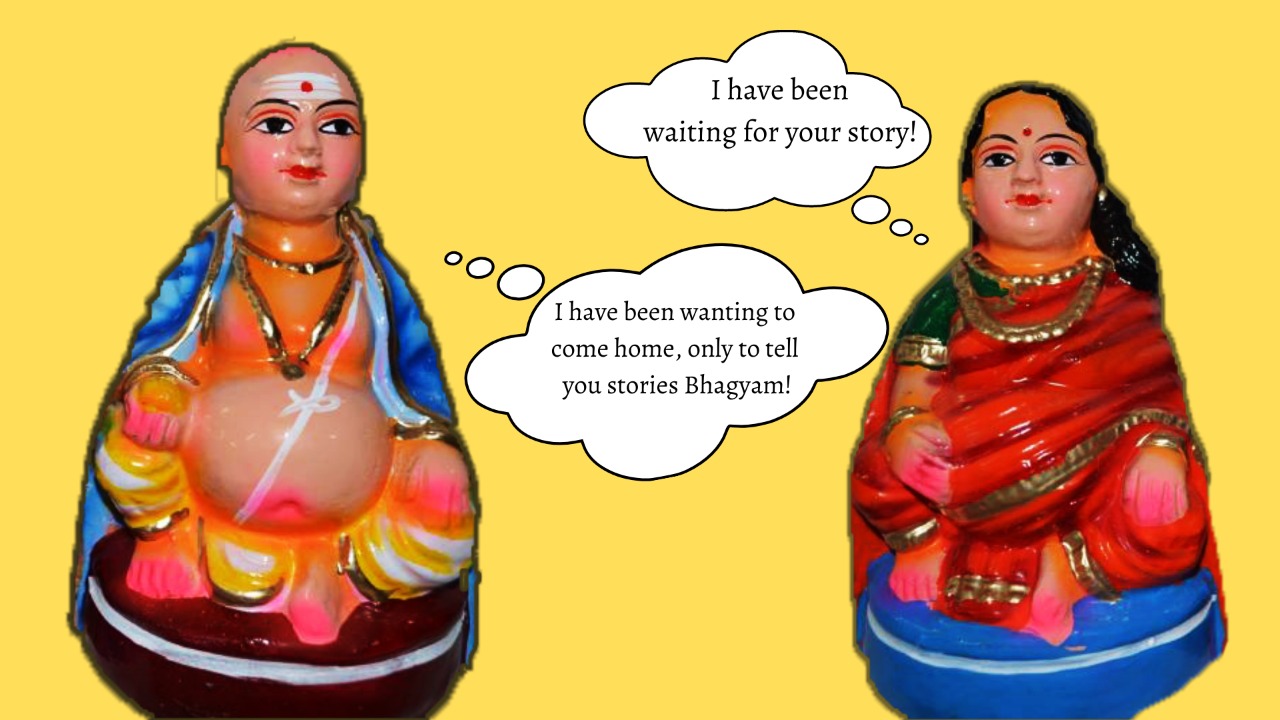
Bhagyam was reading the newspaper, watching the television and going through her whatsapp messages at the same time. Damu was surprised to see his better half really really busy. " Hey Bhagyam, you seem to be as busy as a top notch corporate captain. What's happening now ? " Bhagyam chuckled while switching off her phone. " I was studying a bit about this ' Slow Food '. I was thinking that it is something unique but it is something that we have been practicing in our country for centuries. Anyway it is good to learn about these developments in the west ".
" Yeah Bhagyam. Our country was known for avoiding food wastage. It was considered to be a sin to waste food. We used local ingredients for making our food at home. The absence of a fridge and motorized transport ensured that food was made with the aid of local ingredients. I remember reading about Slow Food in the magazines. Well Bhagyam, can you tell me more about it. Hey wait, Krishna is on his way here. Let him also join our chat, " stated Damu. Krishna and Damu had been friends from childhood.
Krishna entered the house. He just got an EV ( Electric Vehicle ). Therefore he arrived without much fanfare ! " Krishna , come. Join us for a snack now. Bhagyam has some tasty Ghodhuma laddoos ( wheat laddoos ). It was made yesterday. The recipe is from my maternal grandmother. Ah, we were also talking about Slow Food. Good that you have joined, " smiled Damu. Meanwhile , Bhagyam placed a few wheat laddoos and murukkus on the table before settling down on one of the sofas. Both Damu and Bhagyam were in the mood to chat for sometime and the presence of Krishna made it even more interesting.
"Hey Damu, Slow Food was founded in 1986, man. The Founder Carlo Petrini is from Italy. The idea was to promote local food and traditional cooking. It was done at a time when fast food was spreading really fast. Slow Food was meant to preserve regional cuisine and also the farming of plants, seeds and livestock belonging to the local ecosystem. This helped in the promotion of local food ventures and sustainable food varieties. The focus was on quality and quantities did not matter. Food wastage and over production were to be avoided at all cost. The people behind this initiative wanted small and marginal farmers to be protected in the globalized era. They wanted them to be in the global food chain, " said Krishna while biting into a wheat laddoo.
Bhagyam, poured some water into the silver tumblers and pushed it towards her husband and his friend. ' I remember the founding of this organization. is not the snail its logo. It is headquartered at Bra in Italy. I think it was kind of a protest that put the seed for this activity. Some guys resisted the opening up of a Mcdonald's near the Spanish steps in Rome and it was followed with some activity which lead to its founding. Finally the founding manifesto of the International Slow Food movement got signed in Paris. It was in the year 1989 and delegates from about 15 countries signed it those days, " stated Bhagyam.
Damu was moving his eyes from Bhagyam to Krishna and to Bhayam. It appeared as though he was engrossed in a tennis match. " So these guys must be against mass production. Hope they are helping local farmers and homemakers who have preserved food diversity. Given the current ecological concerns, this organization must be super big and present globally. Wonder how it is able to survive the ' Food Empires ' of today, " giggled Damu.
" Slow Food has faced a lot of criticism. It has been called elitist by many. They have stated that it is not practical in a world which needs food security. Also that it comes in the way of mass employment. However, the founding of the University of Gastronomic Sciences at Pollenzo and other developments need to be looked into. Massimo Montanari is another leader in the Slow Food world. Numerous publications, fairs like the Cheese Fair, Slowfish ( Genoan Fish Festival ) and Turin's Terra Madre ( Mother Earth ) etc., along with the wine and food fair had added to the popularity of the efforts. Thousands of students have taken the study of different courses in the University. Students do a lot of field trips as part of their programme. They study food culture and heritage, food ecologies, food communication and management as part of the curriculum. A neo Gothic Palace is the campus, " added Bhagyam.
Damu was amused and amazed to learn about the depth of the movement. He was happy to learn the courses like that were offered - Master in Gastronomy, Master in Contemporary food Heritage, Master in New Food Thinking, Master in Food Culture, Communication & Marketing, Master in Applied Gastronomy: Culinary Arts, Master in Agroecology and Food Sovereignty, Master in Wine Culture and Communication and Master in Food Design. The students were studying in an integrated manner. The mix consisted of humanities ( food history related ), biosciences ( food biodiversity , nutritional sciences , taste science, sensory science, ethnobiology etc., ). The students were also meeting up with farmers, food artisans and experts who addressed the local food system. Students were also trained for employment in the food and tourism industries, food related Government departments, food related journalism among other things. The University was also engaged in products that were building bridges between scientific knowledge and traditional knowledge.
" You see Damu. We have to look into a full understanding of food first by studying food economics , environmental aspects, food history, food biology, anthropology and aesthetics as well. Good, clean and fair are the goals here. The property which houses this University is listed in the ' World Heritage Sites ' category. It was built by the Royal House of Savoy those days. The complex has a wine bank, a hotel and a restaurant as well, Added Krishna while sipping some water from the silver tumbler.
Damu was truly impressed with the work of the Slow Food movement and the academic activity done by them . He began to think aloud, " I think we have followed these principles in our country those days. However, we seem to have left things behind due to a multitude of reasons like colonial rule, socialism and now globalization. It is high time that we build a similar institution in our country. This will help us to lead a sustainable life without compromising on food security. The task ahead will include good communication for people and will also get worried about economic well being too. We have to address all this. Krishna, we should put together a task force in order to see this happen. This idea was the core of India those days and should be so in the future. The women will have to be called upon to share traditional food wisdom. It is a win-win situation for all. Let us all try. It is time to GROW IN INDIA , GROW FOR INDIA , GROW WITH INDIA. "
Bhagyam was super overjoyed. It was her action which had resulted in this thought process and the great plan. Who said that women were not being included ?
The smart Damu and wise Bhagyam had begun one more journey for India that is Bharat.
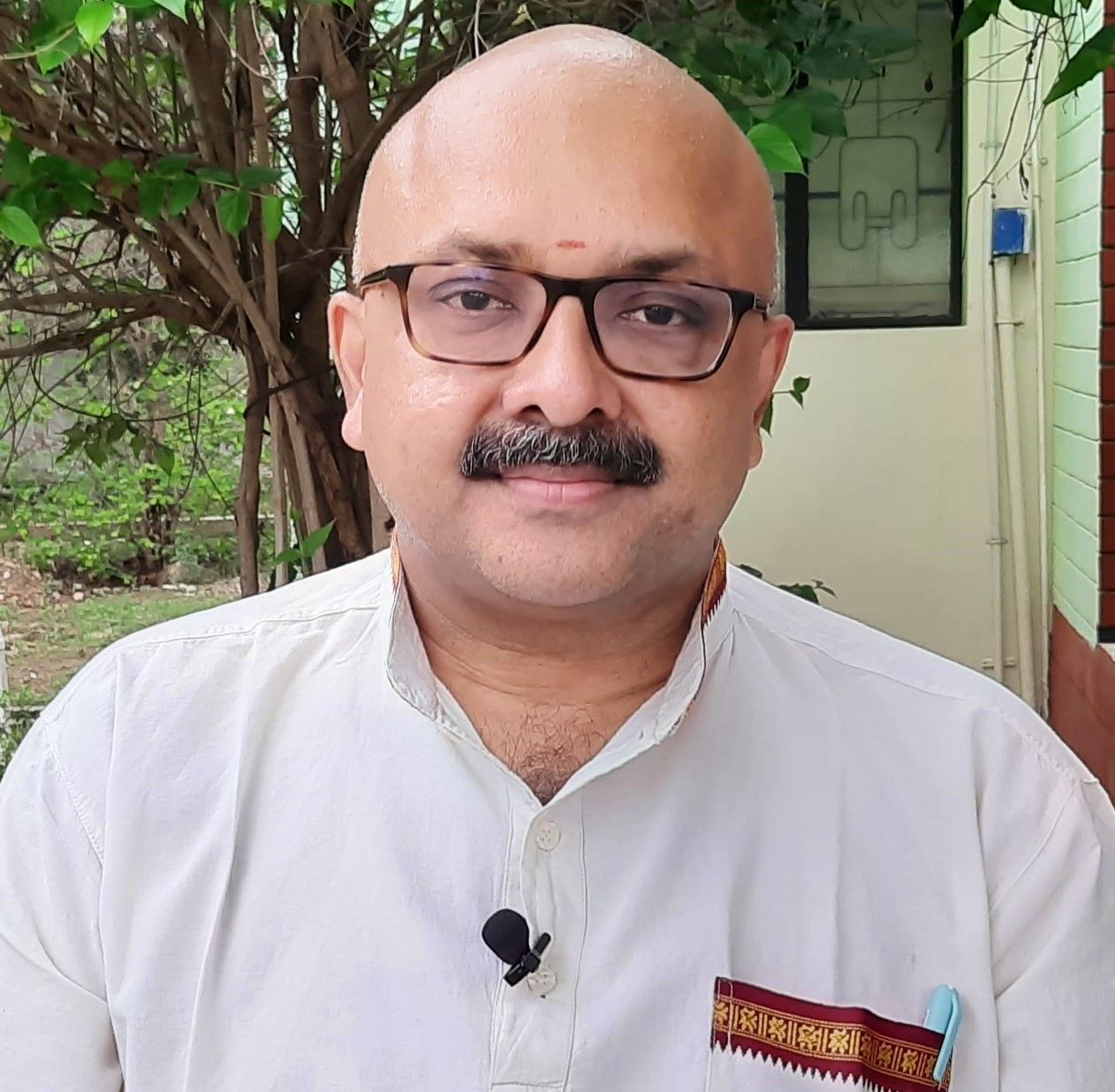 Mr. Rajesh Govindarajulu is one of the founding members of The Verandah Club Pvt. Ltd. He is a leading columnist, historian, jeweler, entrepreneur, and a heritage enthusiast who is earnestly working to revive the past in the light of the present. Experiential learning about the history of Coimbatore is his main course of interest and he is also a panel member of many colleges in the city.
Mr. Rajesh Govindarajulu is one of the founding members of The Verandah Club Pvt. Ltd. He is a leading columnist, historian, jeweler, entrepreneur, and a heritage enthusiast who is earnestly working to revive the past in the light of the present. Experiential learning about the history of Coimbatore is his main course of interest and he is also a panel member of many colleges in the city.
NEXT ARTICLE
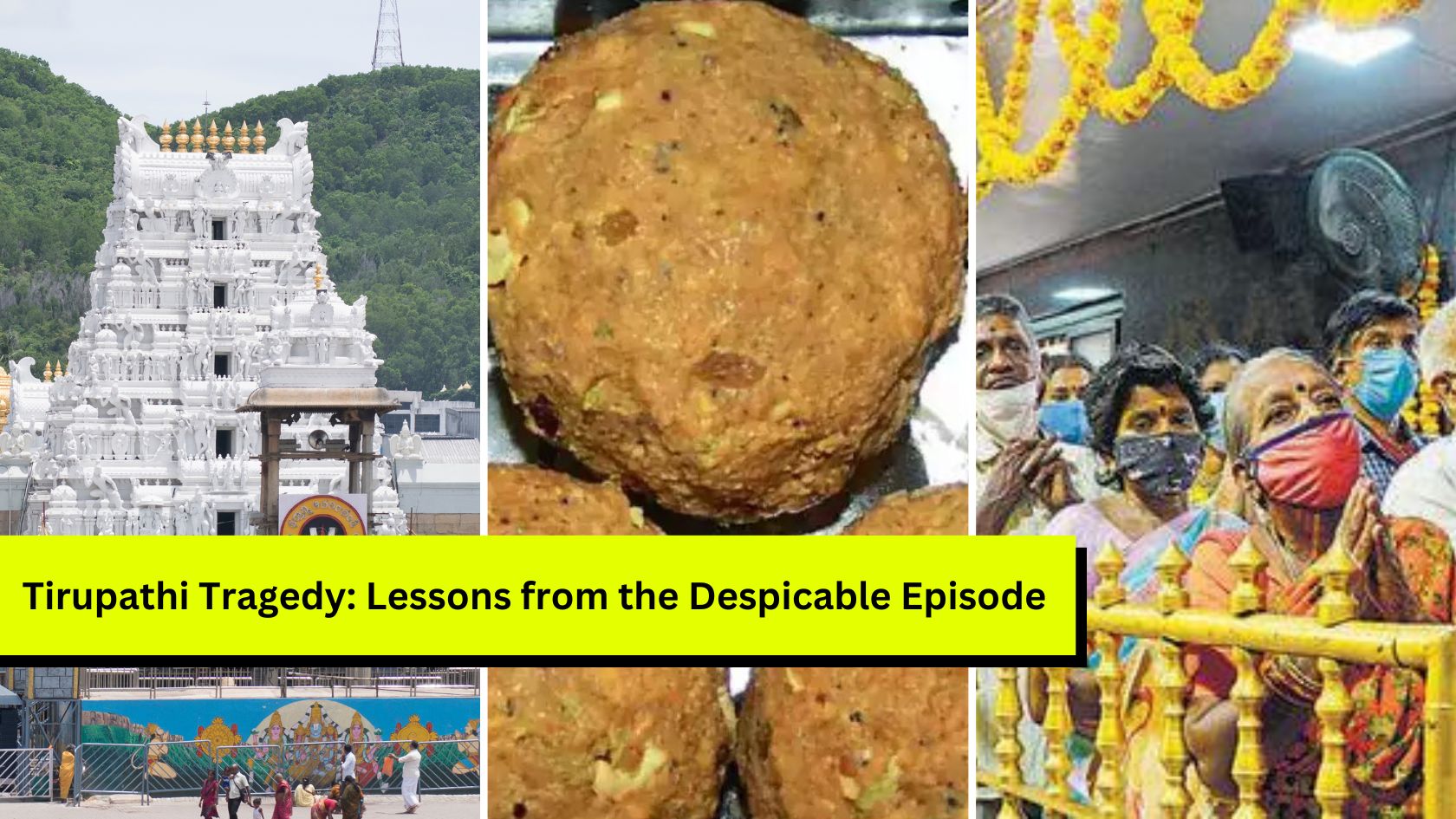
The Venkateshwara Swami Temple in Tirupati is among the holiest places in the world for Hindus. Millions of people throng the temple every year to get...
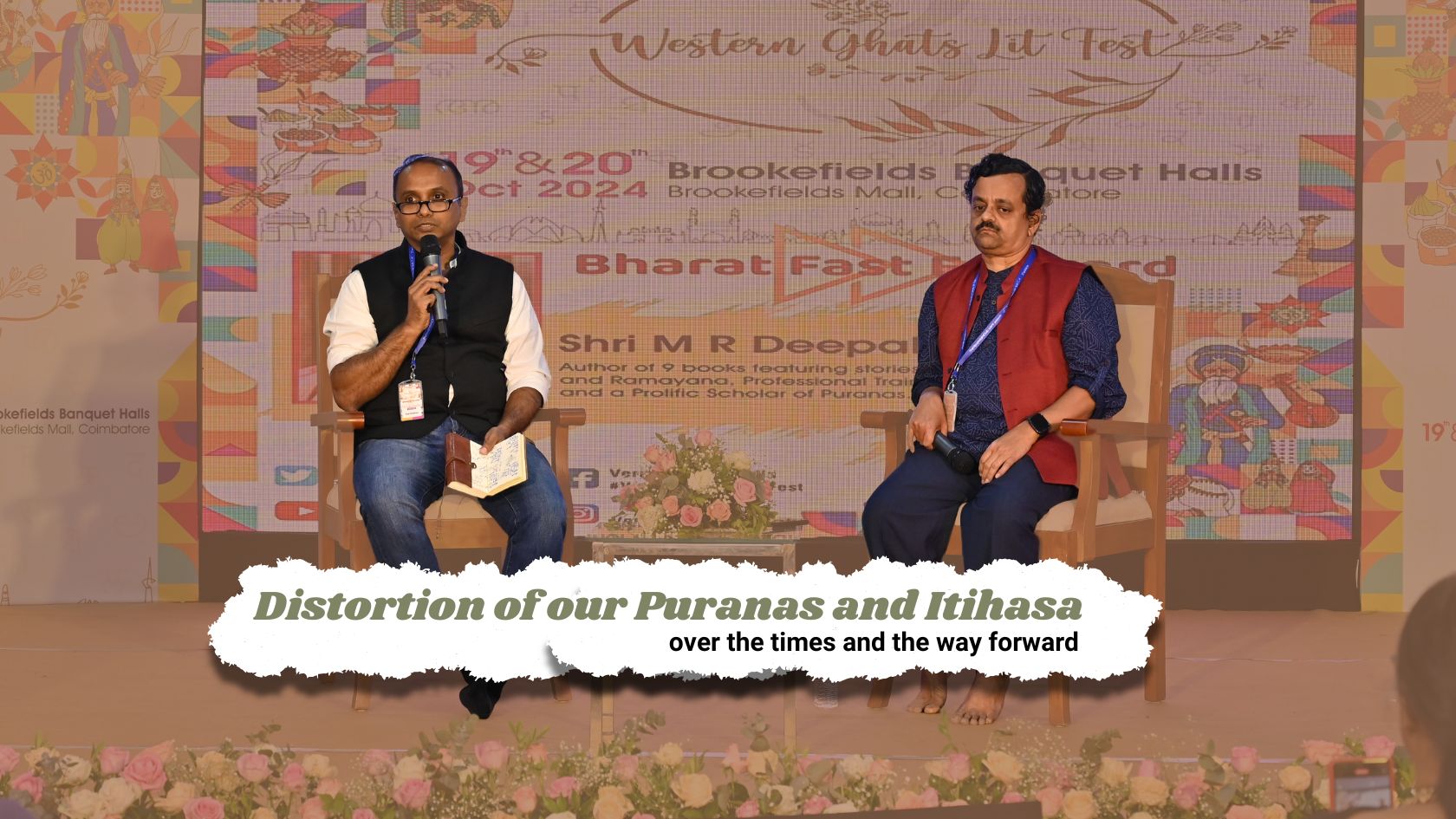
It is a sad reality that our Itihasa and Puranas have been subject to severe distortion over the years. This is not surprising considering how even th...
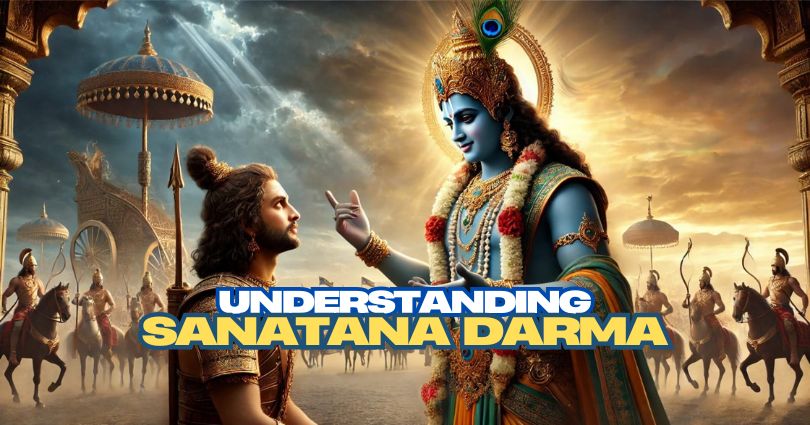
The holy land of Bharat follows Sanatana Dharma. The word Sanatana Dharma is a Sanskrit word meaning, “Eternal law”. It is the indestructible ultimate...